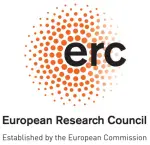Computational Neurophenomenology Cabin Workshop
The goal of this workshop is to assemble an interdisciplinary group of researchers in a remote mountain cabin to work on, and critically rethink, fundamental questions related to mathematical phenomenology, computational phenomenology, neurophenomenology, and their interrelations (see our glossary below).
Following earlier workshops with similar formats, this meeting is meant to foster intensive, small-group discussions on foundational issues, meta-theoretic perspectives, and specific open problems concerning these fields. Rather than reviewing published results, participants are asked to present open questions, unresolved conceptual difficulties, or preliminary ideas. The workshop is designed to create an environment that stimulates focused discussion and encourages the development of new methodological perspectives, worked examples, and guiding principles for this exciting new area of consciousness science.
A particular thematic focus of the 2026 edition is the interaction between Mathematical Consciousness Science—specifically Mathematical Phenomenology—and Neurophenomenology. The workshop will examine how mathematical and computational approaches can inform, constrain, or extend neurophenomenological methods, and how formal treatments of phenomenology may in turn benefit from empirical and methodological insights developed within neurophenomenology.
To this end, the workshop aims to draw on a wide range of contemporary and historical approaches that relate the structure of experience to mathematical and neural models. Relevant directions include, for example, work inspired by Gestalt principles, dynamical systems, Varela’s neurophenomenology, structural theories of consciousness, qualia-structure formalisms, and predictive-processing frameworks. These offer ways of treating features of experience such as temporality, spatiality, figure–ground organisation, indeterminacy, selfhood, agency, valence, unity, and intentionality, as structural constraints for computational models of consciousness. The list is suggestive rather than exhaustive; we welcome any proposals that engage with this general ambition of connecting phenomenological structure with formal models.
This workshop is aimed at early-career researchers (senior PhD students, postdoctoral fellows, and early-stage faculty) who are engaged with contemporary questions in consciousness studies. Participants from all areas of the mind sciences are welcome to apply. Since the workshop seeks to harvest the creativity that diverse perspectives inspire, participants are not required to have a specific thematic focus in their previous work, although familiarity with at least one relevant discipline is required. In case of interest, you are cordially invited to send us an application.
Date & Time
Date: March 22 – March 29, 2026
Location: Mountain Cabin, Dorfgastein, Austria
Participants: 18
Workshop Fee: 300 Euros (includes housing, food and non-alcoholic beverages)**
(Extended) Application Deadline: December 28, 2025
This workshop is part of BAMΞ's Mathematical Phenomenology Sprint.
**Financial support for both workshop fee and travel expenses is available, cf. our application page.
Location
The workshop will take place in a beautiful, cosy mountain cabin which offers all necessary luxuries (a bath, showers, a sauna - and even a toilet). However, we want to point out that a mountain cabin is not a hotel: Accommodation will be in dorms with bunk and double beds, there are no single rooms and bathrooms have to be shared. Also, internet may not be available and possibilities for privacy are very limited. No catering is provided - all participants will be involved in preparing breakfast, lunch and dinner as well as in keeping the cabin clean. Rooms separated by gender can of course be made available. Pictures of the location are available here. A shuttle will be provided to the nearest train station on the first and last day of the workshop.
Workshop Structure
In contrast to usual conferences and workshops, this workshop focuses on discussion sessions in small groups. These sessions are dedicated to specific topics or questions in the above-mentioned fields. To lay the ground for these sessions, there will be kick-off talks given by the participants (30 minutes). Their goal is twofold: First, they should serve as introductions, drawing out the question or topic and clarifying any necessary background knowledge; second, they should present one existing approach or the speaker's own thoughts on the topic.
Discussion sessions will be held in parallel. During the six full days of the workshop, 40-45 discussion sessions will be held. These topics will be fixed as the workshop proceeds based on the applications and on questions or ideas raised during the workshop, in order to ensure they concern those topics that the participants hold to be most important to discuss.
Application
The workshop is aimed at early-career researchers (late PhD, postdocs, or early career faculty) who are interested in the problems discussed in contemporary consciousness studies. Though, we are happy to consider younger applicants if their applications reflect a strong foundational background. We are open to applicants with a background in phenomenology, computational modelling, neuroscience, mathematics, physics or other formal disciplines, as well as a genuine interest in the philosophy of mind.
Participants are not necessarily required to be active researchers in one of the main topics of this workshop. We look forward to applications from people who are passionate about this problem, who appreciate formal approaches to the mind-matter relation, who are open to new ideas and, most importantly, eager to engage in deep discussions. Please note that this workshop is designed so as to offer an open-minded, non-dogmatic and respectful atmosphere.
Funding

We gratefully acknowledge funding from European Research Council (ERC) under the Horizon 2020 programme via Grant 101019254 “CONSCIOUS,” awarded to Anil K. Seth.
Glossary
| Term | Approximate Meaning |
|---|---|
| Mathematical Phenomenology | The use of mathematical tools to describe or represent phenomenology. |
| Computational Phenomenology | The application of formal tools from computational modelling (e.g., from predictive processing) to account for (or explain) phenomenology. |
| Neurophenomenology | The elucidation of generative passages (common principles) between phenomenological and neuroscientific research, to mutually support, inspire, and (reciprocally) constrain analyses in each individual domain. |
| Radical Neurophenomenology | The reinstantiation of the regularities of lived experience within, and perhaps as the transcendental ground of, scientific practice. |
Contact
In case of questions, please email cnp-workshop(at)bamxi.org.
Updates
If you would like to receive updates about this workshop and similar activities, you are cordially invited to join the mailing list of the Bamberg Mathematical Consciousness Science Initiative, available here.

